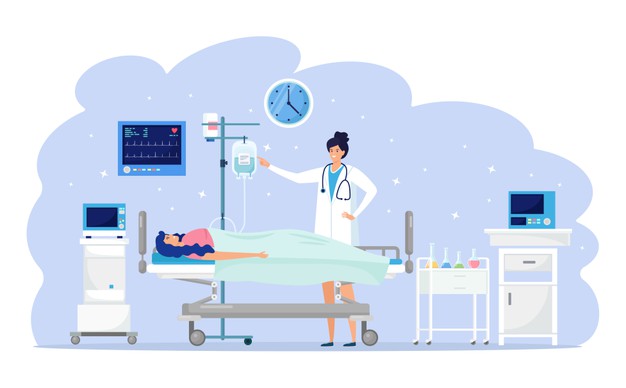Definition and symptoms of asthma

Asthma is one of the common chronic diseases, and at least 300 million people worldwide are afflicted by asthma. The full name of asthma is bronchial asthma, a chronic inflammatory disease that occurs in the small airways, such as the bronchi and fine bronchi. When asthma does not strike, it is as calm as a gentle sea, and people tend to forget that it has its "angry" moments. Once it strikes, it can be a tsunami with huge waves, making it so painful that people cannot breathe.
What are the symptoms of asthma?
Asthma is characterized by recurrent wheezing, shortness of breath, chest tightness and coughing. It usually worsens after exercise and intensifies at night or in the early morning. Most people can relieve it on their own or with treatment. It is this characteristic of self-remission that causes many patients to ignore the potential dangers of asthma by not paying attention to the whole management process.
What are the dangers of poorly controlled asthma?
The airways of asthma patients have a variety of inflammatory cells, inflammatory mediators and cytokines, and under their long-term joint action, the airways become red, swollen, narrowed, mucousy and abnormally sensitive, thus forming chronic airway inflammation. If asthma is not treated regularly, recurrent asthma attacks can lead to increasing inflammation of the airways, and eventually irreversible narrowing of the airways may occur, thus affecting the ventilation function of the lungs.
How should asthma be treated?
Asthma treatment takes a long time. It requires a good partnership between the doctor and the patient. Therefore, it is especially important to find a qualified doctor who is familiar with the diagnosis and treatment of asthma. Only then can the doctor monitor the frequency and characteristics of asthma attacks and follow up well on the effectiveness of asthma control, etc.
Inhaled hormones are an important treatment when it comes to asthma treatment. There should not be excessive concern about the side effects of inhaled hormones. Proper hormone inhalation can control asthma well and reduce the risk of asthma attack. Although inhaled hormones may bring some side effects, they are worthwhile considering the benefits of the treatment. Moreover, doctors will instruct patients on how to minimize the side effects of inhaled hormones. Physicians who are experienced with asthma are familiar with the essentials of inhalation therapy. They can monitor the misuse of inhalation therapy by asthma patients and give proper instructions. Thus, they can help the patient to use the inhaler appropriately, choose the right nebulizer, etc. Therefore, it is recommended that every asthma patient seek a good asthma treatment partner.
What can we do for our asthma patients?
If a family member has asthma, we need to learn to form a good partnership with the doctor. Use the right medication and inhalation therapy under the guidance of the doctor. Also pay attention to the home environment. For example, avoid exposing children to second-hand smoke, third-hand smoke, reasonable arrangement of pets, dust mite removal, indoor fungus removal and other environmental health factors.
For the general public, we should not smoke in public places, encounter suspected asthma attack can help him find inhalation medication, doctor's help, etc.







